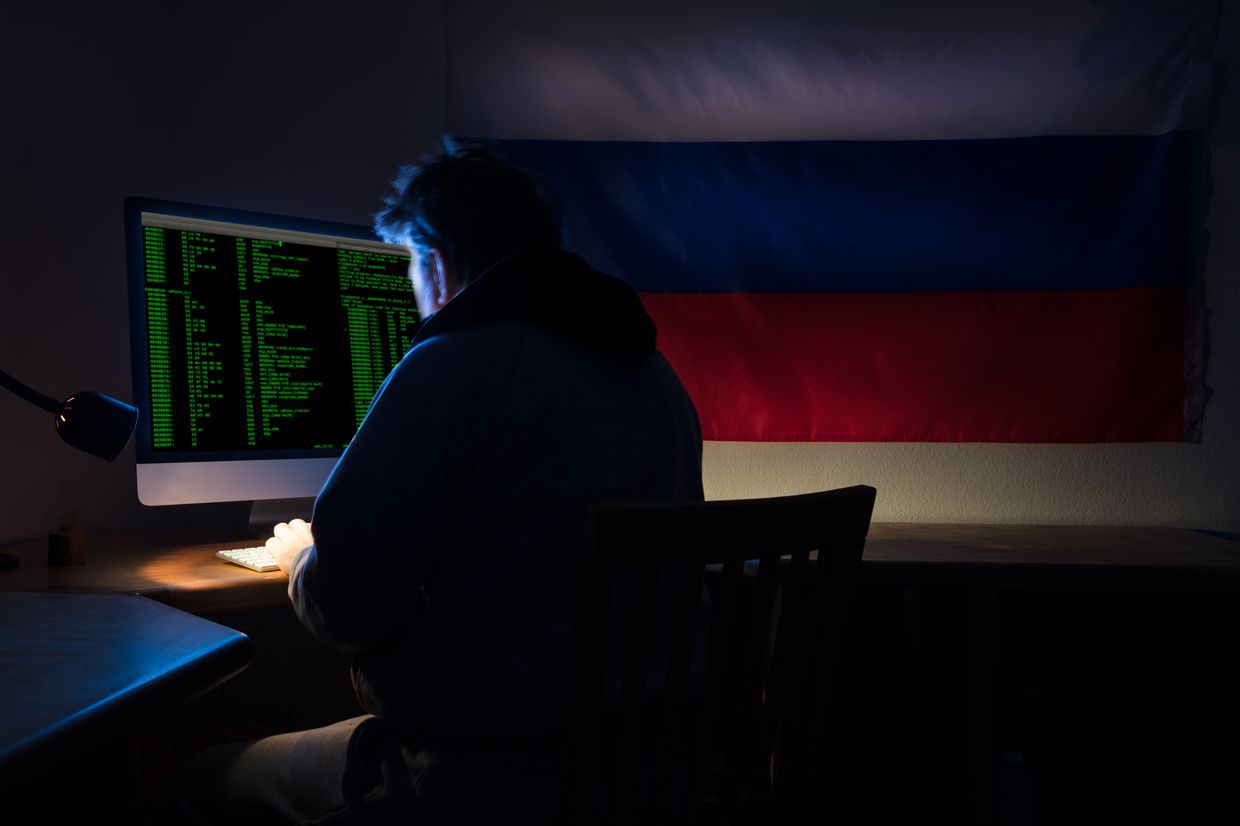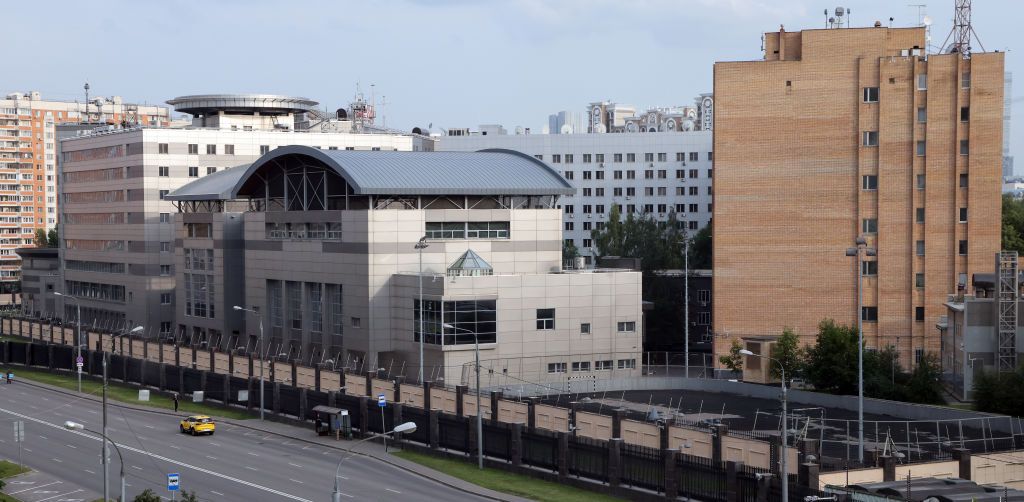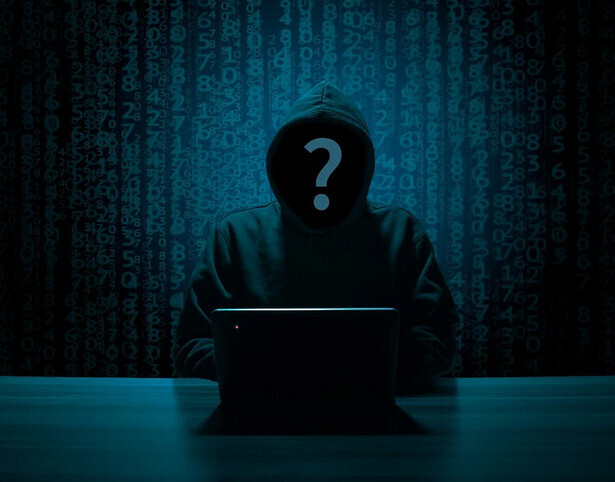[gopher://gopher.floodgap.com/0/feeds/voaheadlines/2024/Oct/08/https---www.voanews.com-a-new-details-emerge-of-how-journalist-turned-spy-kept-watch-on-navalny-7814317.html](gopher://gopher.floodgap.com/0/feeds/voaheadlines/2024/Oct/08/https---www.voanews.com-a-new-details-emerge-of-how-journalist-turned-spy-kept-watch-on-navalny-7814317.html)
Originally posted by the Voice of America.
Voice of America content is produced by the Voice of America,
a United States federal government-sponsored entity, and is in
the public domain.
New details emerge of how journalist-turned-spy kept watch on Navalny
by Graham Keeley
For nearly a decade, a Spanish Russian freelancer used his cover as a
journalist to spy on Russian dissidents for Moscow, including late
opposition leader Alexei Navalny.
Disclosures from intelligence services have shed further light on how
Pablo Gonzalez operated.
Posing as a journalist, Gonzalez allegedly sent the GRU, the Russian
military intelligence, photographs and the Wi-Fi passwords of venues
for meetings of exiled opposition groups.
Gonzalez was also accused of preparing reports on forums attended by
officials from former Soviet Union countries.
His alleged investigations centered on prospective NATO members,
dissident members and the security structures of neighboring states.
His cover as a freelancer who reported for Spanish media and
contributed to international networks, including Spain's EFE, Deutsche
Welle, and VOA was so good that even after his arrest in Poland in
February 2022, some supporters still believed it was a case of mistaken
identity.
In August, Russian President Vladimir Putin welcomed Gonzalez at an
airport in Moscow as part of a hostage swap in which American
journalists and Russian rights activists were exchanged for an assassin
and spies. Their greeting ended any speculation.
Gonzalez, a married father of three, always denied spying and was never
formally charged.
But on Sunday, Spanish newspaper [1]El Mundo reported it had obtained
access to dozens of reports on Gonzalez, citing "Spanish and foreign
intelligence sources."
The Polish prosecutor's office said in a report that Gonzalez "formally
belonged to the structures of the (GRU)" from April 2016.
He was described as "a journalist and political scientist by
profession, married with three children, who covered current affairs
throughout the former Soviet Union with a monthly income of between
'¬1,500 ($1,645) and '¬2,000 ($2,194) and collaborated with various
news outlets."
VOA hired Gonzalez via a third-party freelance media platform. After
learning of his arrest in Poland, the broadcaster removed his content.
Miguel Angel Oliver, president of EFE, told VOA that his network had a
" brief collaboration" with Gonzalez, principally about photographs at
the start of the Ukraine war."
Espionage files
El Mundo described how Polish investigators allegedly uncovered a
report in Gonzalez's possession containing "the addresses of clinics in
Barcelona and Lausanne" in Switzerland where Navalny was treated in
2017. The document is dated June 14, 2017.
Navalny met Gonzalez twice in Europe, once when Navalny underwent eye
surgery in Barcelona after being attacked with a chemical substance.
Gonzalez allegedly sent details of the clinic to Russian authorities,
even taking a selfie with Navalny.
In September 2020, after Navalny survived a poisoning attempt, Gonzalez
posted the selfie on social media. In a post, he said Navalny was not
being targeted by the Russian government, investigators alleged.
Gonzalez also suggested on social media that Navalny's anti-corruption
platform FBK would "continue operating as usual with more support and
permissiveness," saying the opposition leader was "neither dead nor
incapacitated."
In 2023, Navalny returned to Russia and died in a high-security prison
in Siberia in February 2024.
On the surface, Gonzalez worked as a reporter, specializing in the
post-Soviet Union republics.
Polish intelligence said Gonzalez began reporting back to Moscow when
he began traveling abroad.
Documents found in his possession between 2016 and 2021 detail that
after a stay in Georgia, Gonzalez sent a report to the GRU about the
"issue of post-Soviet states and accession processes" and "NATO members
and aspiring members' attitudes towards Russia."
Gonzalez is also accused of sending information about key security
infrastructure in Poland. He allegedly published "disinformation
articles on the internet aligned with the Russian Federation's official
propaganda policy," the files seen by El Mundo said.
The newspaper said it had reviewed the contents of laptops, phones,
iPads and memory cards, seized when Gonzalez was arrested. Electronic
devices that could be used to establish clandestine communication
channels were discovered, according to Polish investigators.
When questioned, Gonzalez denied spying, according to Polish court
documents viewed by the Spanish newspaper.
However, when confronted with documentary evidence, Gonzalez "refused
to comment."
His lawyer, Gonzalo Boye, said the details published by El Mundo left
him feeling "helpless."
"Polish law prevents us from talking about anything that is part of the
criminal process," Boye told VOA. "It is as if the intention is to show
Pablo as being guilty when for more than 2 ½ years, they were not able
to bring an accusation and bring him to trial."
The lawyer, who has represented American whistleblower Edward Snowden
and Carles Puigdemont, a Catalan separatist leader, compared Gonzalez
to Evan Gershkovich, an American reporter unjustly detained in Russia
for nearly 500 days on false espionage charges.
Gonzalez was one of several suspected Russian spies released in
exchange for Gershkovich and other political prisoners.
"It is clear that there is a double standard in dealing with the case
of one and the other journalist," Boye told VOA, adding, "But I
understand that this is what happens in political contexts like the one
we are living in at the moment when one is on one side or the other,
when I prefer to be on the side of truth and the rule of law."
Through Boye, VOA asked Gonzalez for a comment but did not receive a
response.
A source with knowledge of the Russian intelligence sector who did not
want to be named, told VOA that Gonzalez grew up in Basque Country,
where sympathies for the independence movement are common. And in
left-wing circles, support for Putin is not unusual.
This meant many who met him did not challenge his pro-Russian roots,
far less suspect he worked for Russian intelligence.
Alongside spying on Navalny in 2016, Gonzalez infiltrated the Boris
Nemtsov Foundation for Freedom, named after a Russian opposition
politician who was assassinated in 2015. At the foundation, he became
close with key members of the group.
Nemtsov's daughter Zhanna Nemtsova posted on social media that she was
a victim of Gonzalez.
Spanish secret services, speaking on background to a VOA reporter, said
they believed he was a Russian spy.
Polish security services said Gonzalez had been "carrying out
intelligence tasks in Europe."
Richard Moore, head of Britain's foreign intelligence service MI6, said
at the Aspen Security Forum in 2022 that Gonzalez was an "illegal"
arrested in Poland after "masquerading as a Spanish journalist."
"He was going into Ukraine to be part of their destabilizing efforts
there," Moore said.
References
#navalny #russia #spy #spying #gru #journalist #journalism #pablo-gonzalez #espionage #spain #spanish #reporter #prisoner-swap







 Guarulhos (SP) Brazilië 2023
Guarulhos (SP) Brazilië 2023



